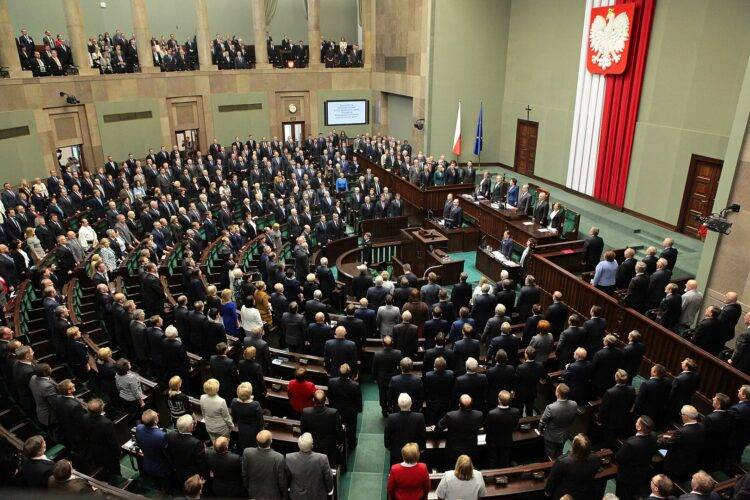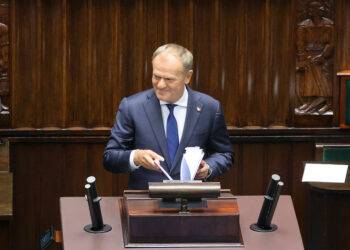Poland’s abortion laws, which rank among Europe’s most restrictive, have returned to the spotlight as the Sejm, the lower house of Parliament, debates several proposed bills that could alter or reinforce the current legislation. This political activity reignites a contentious issue that played a pivotal role in recent elections, reflecting the deep societal and political divisions surrounding reproductive rights in Poland.
In 2020, Poland’s Constitutional Tribunal, influenced by the conservative Law and Justice Party (PiS), implemented a near-total ban on abortion, permitting it only in cases of rape, incest, or direct threats to the mother’s health. The decision to tighten what were already some of Europe’s most restrictive abortion laws led to massive protests across the country, with many Poles expressing their outrage at what they saw as an infringement on women’s rights and autonomy.
The 2020 abortion law changes sparked widespread public dissent, galvanizing support for opposition parties that promised to address and potentially reverse these restrictions. One of the major electoral promises of the now-governing coalition was to revisit and liberalize abortion laws, a pledge that significantly contributed to their electoral victory. The current debate in Parliament reflects the fulfillment of these promises as multiple parties present their legislative proposals.
The new legislative proposals range from decriminalizing abortion to ensuring broader access to reproductive services. One notable bill from the Left party seeks to depenalize abortion up to the 12th week of pregnancy and remove penalties for those assisting in the procedure. Another proposal from the Civic Coalition advocates for state participation in securing reproductive rights and allows terminations under broader circumstances, including severe fetal anomalies. However, these liberalizing efforts face stiff opposition from conservative factions within the Parliament, setting the stage for a heated legislative battle.
In the current debates surrounding Poland’s abortion laws, the ruling coalition finds itself divided on the best course of action. The Civic Coalition (KO) and the Left (Lewica) generally support the liberalization of abortion laws, advocating for legislation that would permit abortion up to the 12th week of pregnancy. They argue that this change would align Poland more closely with European standards on reproductive rights, enhancing women’s autonomy over their own bodies. On the other hand, the Third Way (Trzecia Droga) party proposes a more cautious approach, suggesting that a national referendum be held to decide the matter. This stance highlights a significant rift within the coalition, as the Third Way seeks to place the decision directly in the hands of the Polish people, potentially bypassing the parliamentary route favored by its coalition partners. This split reflects broader tensions within the coalition regarding how to handle sensitive social issues that have significant ethical, legal, and political implications.
All of the abortion-related proposals submitted by the parties within the ruling coalition have successfully moved forward to the next stage of parliamentary proceedings. Each proposal, despite representing differing perspectives on the scope and conditions under which abortions should be permitted, has been assigned to select committees for further scrutiny and debate. This advancement signifies a pivotal stage in the legislative process, where detailed evaluations, amendments, and discussions will shape the final forms of these bills. It reflects the coalition’s commitment to addressing this complex issue through legislative means, ensuring that each perspective within the alliance is considered before any changes to the law are enacted. This progression also sets the stage for more nuanced debates and potential compromises within the coalition, as they work towards reconciling their varying views on abortion legislation.
As Poland’s Parliament debates these new abortion proposals, the nation remains divided. The outcome of these discussions will not only determine the future of reproductive rights in Poland but also signal the direction of the country’s social policies under the current administration. With deep societal implications and international attention focused on these developments, the decisions made in the coming weeks could reshape Polish society for years to come.


















